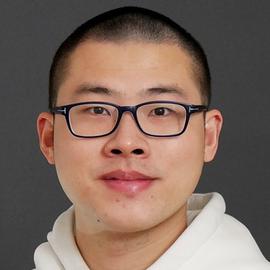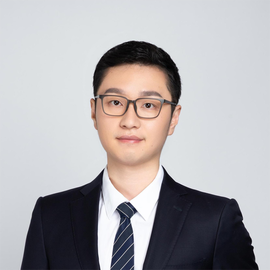Abstract
Estimating the difference between quantum data is crucial in quantum computing. However, as typical characterizations of quantum data similarity, the trace distance and quantum fidelity are believed to be exponentially-hard to evaluate in general. In this work, we introduce hybrid quantum–classical algorithms for these two distance measures on near-term quantum devices where no assumption of input state is required. First, we introduce the variational trace distance estimation (VTDE) algorithm. We in particular provide the technique to extract the desired spectrum information of any Hermitian matrix by local measurement. A novel variational algorithm for trace distance estimation is then derived from this technique, with the assistance of a single ancillary qubit. Notably, VTDE could avoid the barren plateau issue with logarithmic depth circuits due to a local cost function. Second, we introduce the variational fidelity estimation algorithm. We combine Uhlmann’s theorem and the freedom in purification to translate the estimation task into an optimization problem over a unitary on an ancillary system with fixed purified inputs. We then provide a purification subroutine to complete the translation. Both algorithms are verified by numerical simulations and experimental implementations, exhibiting high accuracy for randomly generated mixed states.
Publication
Quantum Science and Technology

Visiting Scholar
I received my doctorate in Mathematics from the University of Copenhagen in 2025, under the supervision of Prof. Laura Mancinska. Previously I obtained my master’s and bachelor’s degrees in 2020 and 2017 respectively, both in electronic engineering from Beihang University. My research interests include quantum information theory, Bell non-locality and quantum machine learning.

Associate Professor
Prof. Xin Wang founded the QuAIR lab at HKUST(Guangzhou) in June 2023. His research primarily focuses on better understanding the limits of information processing with quantum systems and the power of quantum artificial intelligence. Prior to establishing the QuAIR lab, Prof. Wang was a Staff Researcher at the Institute for Quantum Computing at Baidu Research, where he concentrated on quantum computing research and the development of the Baidu Quantum Platform. Notably, he spearheaded the development of Paddle Quantum, a Python library designed for quantum machine learning. From 2018 to 2019, Prof. Wang held the position of Hartree Postdoctoral Fellow at the Joint Center for Quantum Information and Computer Science (QuICS) at the University of Maryland, College Park. He earned his doctorate in quantum information from the University of Technology Sydney in 2018, under the guidance of Prof. Runyao Duan and Prof. Andreas Winter. In 2014, Prof. Wang obtained his B.S. in mathematics (with Wu Yuzhang Honor) from Sichuan University.